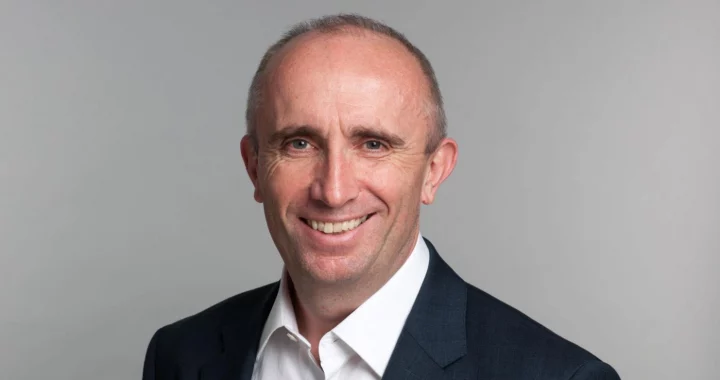AC Ventures: ESG and Impact Investing in Southeast Asian Startups

Lauren Blasco, Principal - Head of ESG at AC Ventures. | Photo by AC Ventures.
Southeast Asia has recently become a hot spot for startups to flourish. The amount of internet users in Southeast Asia as of 2021 had reached 440 million, which is 75% of its total population. However, this amount of internet users are met with poor accessibility and resources. This is where startups come in, to bridge the gap between consumers and the services they desire.
Google, Temasek, Bain & Co reported that the Southeast Asian digital economy has increased three-fold between 2015 and 2020. By 2025, Jungle Ventures projected that this amount can reach a valuation of $1 trillion.
On Friday morning (14/10), Green Network interviewed Lauren Blasco, Principal – Head of ESG at AC Ventures. Lauren shared her insights about the current climate of startups in Southeast Asia, ESG, and why we should invest in impact.
Can you tell us about your organization and role?
AC Ventures is an early-stage technology venture fund that focuses on Indonesia’s digital disrupters.
My role is multi-faceted–focusing on reporting and policy, creating the company impact philosophy and ESG considerations, deciding the reporting mechanisms and commitments we want to integrate, creating a market thesis around ESG and climate tech as well as value creations which includes collaboration and consulting with our portfolio companies focused on net impact assessments, developing governance policies, and promoting diversity in company management to enhance growth.
We also incorporate industry-specific and enterprise-specific road maps as well as make risk assessments and develop strategies to mitigate these risks. On the value creation side, we advise portfolio companies on how to create impact and ESG policies, which is a combination of the company’s purpose and its practices. It should be expressed in the change they seek to create and the operational choices they make.
I also focus on investment opportunities regarding ESG, clean tech, and climate tech.
What are your corporate sustainability commitments and goals?
ESG is deeply ingrained into our pre-investment framework to promote impact value creation. We currently work with Upright Project to compile our net impact assessment as we very much value and understand the importance of a third-party platform to ensure full transparency with all our stakeholders. The overall net impact ratio for AC Ventures and its portfolio delivered a 37% positive net impact ratio. As a comparative and useful benchmark, the Nasdaq Small Cap Index delivered an average of 29% and the S&P 500 at 2%.
We also recently became a signatory of the UNPRI (UN Principles of Responsible Investment) and the UNWEP (UN Women Empowerment Principles).
In addition, we are participating in IFC’s Invest2Equal Program, making commitments for gender inclusion at both the firm level as well as the investment side. Our current commitments are to have a 50:50 gender balance team, which we have accomplished, and to have 30% of our investments with female founders. Currently we have 37% invested into female founders.
How do you implement ESG principles across your business operations and investment?
At AC Ventures, ESG considerations are critical to our operational practices. We work closely with potential existing portfolio companies to identify and manage ESG opportunities and risks throughout their investment process. Prudent management of ESG risks is key to facilitating the greatest positive impact for all stakeholders and also informing better investment decisions that deliver superior financial returns.
What have been your most difficult challenges in implementing ESG and how do you overcome them?
The most difficult and challenging is reporting and data. ESG in Indonesia is in an infancy stage, education and data collection are the two most important roles in being able to create a baseline and doing all of those things. I’d say probably a majority of tech startups don’t really collect this data. We have to get them to understand what information they need to collect and why. I think when people understand why they’re doing it, it’s always a lot better.
If you just think about tech in general, there’s so much embedded impact that’s already incorporated into tech startups. For example, if you look at lending platforms for SMEs, it provides financial inclusion and literacy. If you look at the waste and climate tech platforms, they are creating jobs for informal waste collectors. If you look at some of our other portfolio companies, they provide education and increase wages for farmers and fishermen communities, also helping them identify the best operational practices to reduce their carbon footprint. If they are actually learning what to measure, then they can actually identify how to create a strategy around it.
I think most startups probably don’t have ESG implemented into their overall strategy but that’s something we’re working on from our value creation perspective. Some of our companies are further along in their ESG journey so they already have a kind of a framework built in, while some are at the grassroot level. By just helping them figure out how they can create baselines, and then figuring out what they’re doing very well in and what areas they should improve upon.
Can you tell us more about your portfolio companies?
We currently have about 120 portfolio companies that we invest in. A majority of them are in Indonesia. I’d say we are about 90% Indonesia-focused, but we do have a handful of companies throughout Southeast Asia as well.
Do you have a particular policy or requirement for the startups that you invest in?
It’s actually one of the things that we integrate post-investment. All of our startups have their own focus. Clearly we would love them to be further along in their ESG journey, but we invest in them regardless of their stage. So depending on where the investment lies, they’re going to be all at different plates. It’s a part of something that we help them with. If we believe in the founder then it’s something we can definitely help them implement as part of their overall strategy.
It’s kind of an ongoing process where you start in one place, and then once you get that figured out, and then you go to the next. It’s never complete, you can always get better.
How do you empower startups to create impact that is aligned with ESG?
If you’re talking about startups, they are quite focused on many things, their core business, fund-raising, etc. So, ESG isn’t likely their number one priority. That said, I do know that most startups understand value optimization and ESG strategy is in line with that to help them mitigate risk, streamline their operations, identify opportunities, access capital and valuation upside. So, when you’re starting off, it’s actually easier to implement an ESG strategy than trying to change a whole business plan to implement that.
Just using our portfolio as reference, everyone’s been very open-minded and willing to incorporate this because they do see the upside for the future of their growth.
Can you tell us at least one impact story from your portfolio companies that impress you?
Eden Farm is an agrotech company and they’ve taken seriously reducing their carbon footprint. They were looking at how they can streamline their logistic operations and one of the ways they were able to do that is by installing refrigeration facilities in some of their distribution centers to reduce daily deliveries to only twice a week. So, their carbon footprint is able to be reduced drastically because the deliveries went from daily to only twice a week. That’s a good example of a portfolio company that’s really trying to focus on reducing their carbon footprint from a beginning perspective.

We have another wonderful impact story at Koinworks. Koinworks is a lending platform that focuses on SMEs. Part of their impact is the financial inclusion that their platform allows as well as the financial literacy. Looking at it from a gender perspective, they also focus on financial literacy for female founders within SMEs.
How do you see the landscape of startups in Southeast Asia, especially in association with ESG?
Based on my experience with our diverse portfolio of about 120 companies, everyone has been open-minded and happy to learn how to best incorporate ESG. One of the things that we are doing is doing baseline assessments through the Upright Project. We’re doing an impact ratio across all of our portfolio. This really gives our portfolio companies an understanding about what we’re doing really well and what areas that can be improved upon, because the baseline is really just the starting point.
How do you see impact investing in Southeast Asia in particular and Asia in general?
The investment community is very interested and starting to ask more questions around ESG and impact. We’re already starting to see the movement from a general exclusion list, which is like the beginning phase, to ensure ESG consideration and impact philosophies. That’s for Southeast Asia and Asia in general.
This is an extremely fast-moving space, so I think if we have this conversation again in three months my answer would be even more in depth. I’d say, six to twelve months ago it was more focused on exclusion list, now it’s getting more kind of into ESG considerations, impact philosophies, and in framework.
What good practices that you learned regarding ESG in your industry that your fellow heads of ESG and sustainability practitioners can learn too?
As this is a space of growing importance, creating a baseline is probably the most important thing because you can’t manage what you don’t measure. I think that’s the best advice I can give to you, to any startups or any businesses, is really creating that baseline. Without it, it’s really hard to jump into strategies, framework, etc.
We have quite many startups in our readership, can you share some advice that may be useful for the startup community to thrive?
We recently published an impact report with BCG, it’s titled “Scaling Impact with Technology”. I would say for anyone in the space, startups, or looking to incorporate ESG, it would be a great read for you. When we set out to write the report, the idea was to create a framework that would guide the way for tech companies and investors who see a new paradigm of ESG and impact reporting on the horizon in emerging markets.
There’s no better time than now to incorporate ESG into overall strategy. Getting ahead of inevitable regulations is only going to add benefit. I think that’s one of the things that we speak to our portfolio companies about. Having this done and putting you on your best footing possible before regulation happens, because once regulation happens that’s when everybody scrambles and then things get lost in or fall to the cracks. You don’t have to do everything all at once, but you can do it little by little.
Editor: Nazalea Kusuma

 Electric Vehicles Roam the Roads of Kenya
Electric Vehicles Roam the Roads of Kenya  Come Back Stronger: Building Philippines’ Resilient Economy Post-COVID-19
Come Back Stronger: Building Philippines’ Resilient Economy Post-COVID-19  Inside Experian’s Sustainability Journey: An Interview with Chief Sustainability Officer Abigail Lovell
Inside Experian’s Sustainability Journey: An Interview with Chief Sustainability Officer Abigail Lovell  How Protection Law and Global Commitments Can Accelerate China’s Wetland Conservation
How Protection Law and Global Commitments Can Accelerate China’s Wetland Conservation  How Biotechnology Can Support Food Security and Energy Transition
How Biotechnology Can Support Food Security and Energy Transition  Thinking Through Product Life Cycle and Good Practices for Sustainability: An Interview with David Croft from Reckitt
Thinking Through Product Life Cycle and Good Practices for Sustainability: An Interview with David Croft from Reckitt  Test Custom Feature Image
Test Custom Feature Image  Test premium post
Test premium post